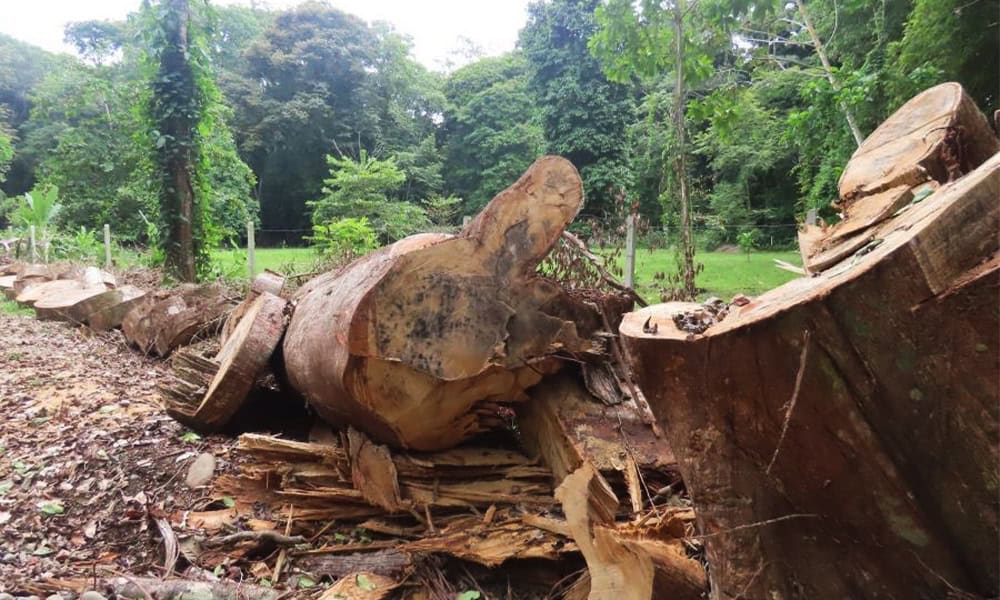Honduras reported on Sunday that land occupants in the country’s natural reserves are “boycotting” the government’s deforestation plan initiated last May, as they want to continue the “brutal destruction” of these areas affected by extensive cattle ranching and agriculture.
“They have organized to boycott and stop the Environmental Plan ‘Zero Deforestation by 2030,'” the government’s National Council for Defense and Security (CNDS) stated in a press release.
President Xiomara Castro launched the plan on May 22, led by the CNDS, which includes the heads of the three branches of government and is supported by military and police, the Prosecutor’s Office, and other high officials.
The plan establishes an “environmental emergency in the forests of Honduras,” “the defense of protected areas,” “thorough investigation of criminal activities” such as drug trafficking, and “control and neutralization of roads used for environmental crimes,” among other measures.
The CNDS explained that a dialogue table between the government and land occupants began on Friday with those involved in the Río Plátano areas, the Tawahka Asangni reserve, the Patuca and Coco Rivers, and the Entre Ríos Mountain Range, the largest forest reserve in the country.
However, amid an “aggressive attitude,” the land occupants withdrew from the dialogue and published “threatening and violent messages” in media and on social networks, showing no willingness to “resolve the serious problem of brutal deforestation.”
The government denounced the “terrible damages” caused by “debris, deforestation, and fires,” as well as the “irreversible ecological and environmental deterioration, acceleration of climate change, and severe droughts.”
It acknowledged that there are people of “good faith,” but also that “organized crime and drug trafficking” operate in the region, “cultivating coca leaves, deforesting large areas of land, to conceal money laundering.”
A lawyer for the ranchers, Juan Soto, told local media that they were “intimidated” before entering the “negotiation,” surrounded by “armored vehicles,” which is why “the atmosphere became a bit heated.” However, he said they are willing to attend a “dialogue table that respects constitutional guarantees.”
Honduras is the fourth most dangerous country in the world for environmental activists, with 18 murders in 2023, according to the NGO Global Witness.






